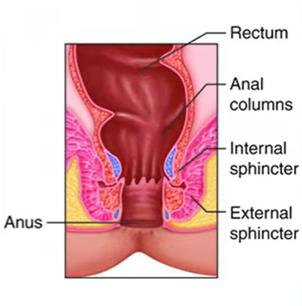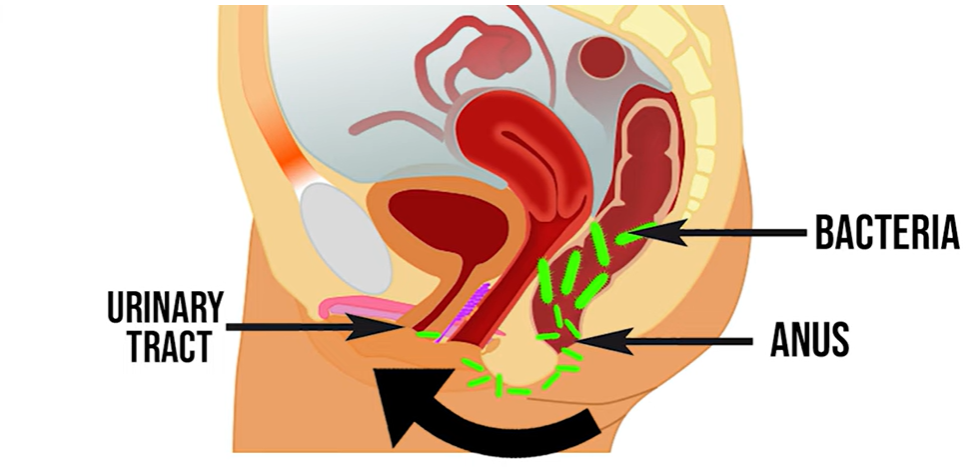Urinary Tract Infection, commonly known as UTI, refers to an infection anywhere along the urinary tract. This includes the kidneys, ureters, bladder, and urethra — essentially the entire path urine follows from its formation to exit.
Why UTIs Are So Common in Women
UTIs are particularly common among women. In fact, nearly one in three women will experience a UTI at some point in their lives. What makes it more concerning is that these infections often return even after proper treatment.
So, what makes women more prone to UTIs?
-
Shorter Urethra: In women, the urethra (urinary pipe) is much shorter than in men. This means bacteria have a shorter distance to travel to reach the bladder and cause infection.
-
Proximity to the Anal Region: The urinary tract is located close to the anus in women. This anatomical setup makes it easier for bacteria from the colon, especially E. coli, to travel upward and infect the urinary tract.
The Main Culprit: E. Coli Bacteria

The most common cause of UTIs is a type of bacteria called Escherichia coli (E. coli). This bacteria normally lives in the intestines and around the anal area. While it’s harmless in the gut, it becomes problematic when it travels to the urinary tract.
How Does E. Coli Cause Infection?

-
E. coli uses tiny hair-like structures called fimbriae to cling to the lining of the urinary tract.
-
Once attached, they multiply and form colonies.
-
These colonies can create a protective coating known as a biofilm, which shields the bacteria from urine flow and even antibiotics.
This is why, even after completing a course of antibiotics, the infection might come back — the biofilm makes it harder to fully eliminate the bacteria.

Hygiene and Cleaning Practices Matter
Proper hygiene is crucial, especially for young girls and women.
Best Cleaning Practice:
Always wipe from front to back — from the urinary opening toward the anus. Wiping the other way can introduce bacteria from the anus into the urinary tract.
In young children, especially girls, improper cleaning after using the toilet is a common cause of recurring UTIs. Parents should ensure that the perianal area is cleaned properly after each bowel movement.
Reasons Why UTIs Keep Coming Back


1. Disturbed Vaginal Flora
The vagina is home to beneficial bacteria, especially Lactobacillus, which:
-
Maintain an acidic pH to prevent harmful bacteria from growing
-
Produce hydrogen peroxide that kills invading bacteria
Frequent use of antibiotics can disturb this balance by killing the good bacteria. As a result, harmful bacteria may increase and travel to the urinary tract, leading to recurrent infections.
2. Incomplete Courses of Antibiotics
Stopping antibiotics mid-way is dangerous. It can leave some bacteria alive, allowing them to multiply and cause reinfection. Always complete the prescribed course of antibiotics, even if symptoms improve.
3. Genetic Predisposition
If your mother or sister has a history of frequent UTIs, you may also be more susceptible. Genetics can play a role in how your body resists infections.
Hormones and UTIs
1. Post-Menopause UTIs
After menopause, estrogen levels drop significantly. This causes the vaginal lining to thin and reduces the number of protective Lactobacillus bacteria.
As a result:
-
The vaginal environment becomes less acidic
-
Harmful bacteria can grow easily and enter the urinary tract
2. Pregnancy and UTIs
During pregnancy:
-
The growing uterus puts pressure on the bladder and urinary tract
-
Urine may not flow freely, allowing bacteria to multiply
-
Even without symptoms, bacteria can grow in urine, so pregnant women should be screened regularly
Interestingly, women who have had a full-term pregnancy may have a lower risk of UTIs later in life due to hormonal changes and structural alterations during childbirth.

Behavioral and Lifestyle Triggers
1. Holding Urine for Too Long
Delaying urination can cause urine to back up into the bladder or ureters. This can carry bacteria upward and encourage infection.
2. Sexual Activity
Certain sexual habits can increase the risk of UTIs, including:
-
Frequent intercourse
-
Multiple partners
-
Using spermicides
-
Trauma or use of unclean objects during intercourse
These behaviors can introduce bacteria into the urinary tract or disrupt the protective vaginal flora.
Other Risk Factors
Diabetes and UTI Risk
People with diabetes, especially women, are at higher risk of UTIs due to:
-
Higher glucose levels in the urine, which feed bacteria
-
Weakened immune responses
-
Greater likelihood of infection with resistant bacteria or fungi
Summary: Why UTIs Happen and Come Back in Women
| Factor | How It Affects UTI Risk |
|---|---|
| Short urethra | Easier bacterial entry |
| Close proximity to anus | Bacteria transfer from gut |
| Poor hygiene | Introduces bacteria to urethra |
| E. coli & biofilm | Resistant colonies hard to remove |
| Antibiotic overuse | Destroys good bacteria |
| Menopause | Reduces protective flora |
| Pregnancy | Urine retention and bacterial growth |
| Genetics | Inherited susceptibility |
| Holding urine | Backflow increases infection chance |
| Diabetes | Weakened immunity and sugar-rich urine |
How to Prevent Recurrent UTIs

-
Maintain Hygiene
-
Always wipe front to back
-
Use clean, gentle toilet paper or water
-
-
Stay Hydrated
-
Drink plenty of water daily
-
Helps flush out bacteria from the urinary tract
-
-
Don’t Hold Urine
-
Go when you feel the urge
-
Prevents urine stagnation
-
-
Urinate After Intercourse
-
Helps flush out any introduced bacteria
-
-
Avoid Excessive Antibiotic Use
-
Only take antibiotics when prescribed
-
Complete the full course
-
-
Include Probiotics in Diet
-
Foods like yogurt can help maintain healthy flora
-
-
Consider Hormone Therapy (Post-Menopause)
-
Under medical guidance, estrogen creams or pills can help restore the vaginal environment
-
Final Thoughts
Urinary Tract Infections are incredibly common in women, and while they can be frustrating and painful, they are manageable and preventable. Understanding the real reasons behind recurring UTIs — like poor hygiene, bacterial biofilms, hormonal changes, and antibiotic misuse — is the first step toward better urinary health.
By making small but consistent lifestyle changes and consulting your doctor when needed, you can reduce the risk of recurrent UTIs and maintain a healthier urinary tract.